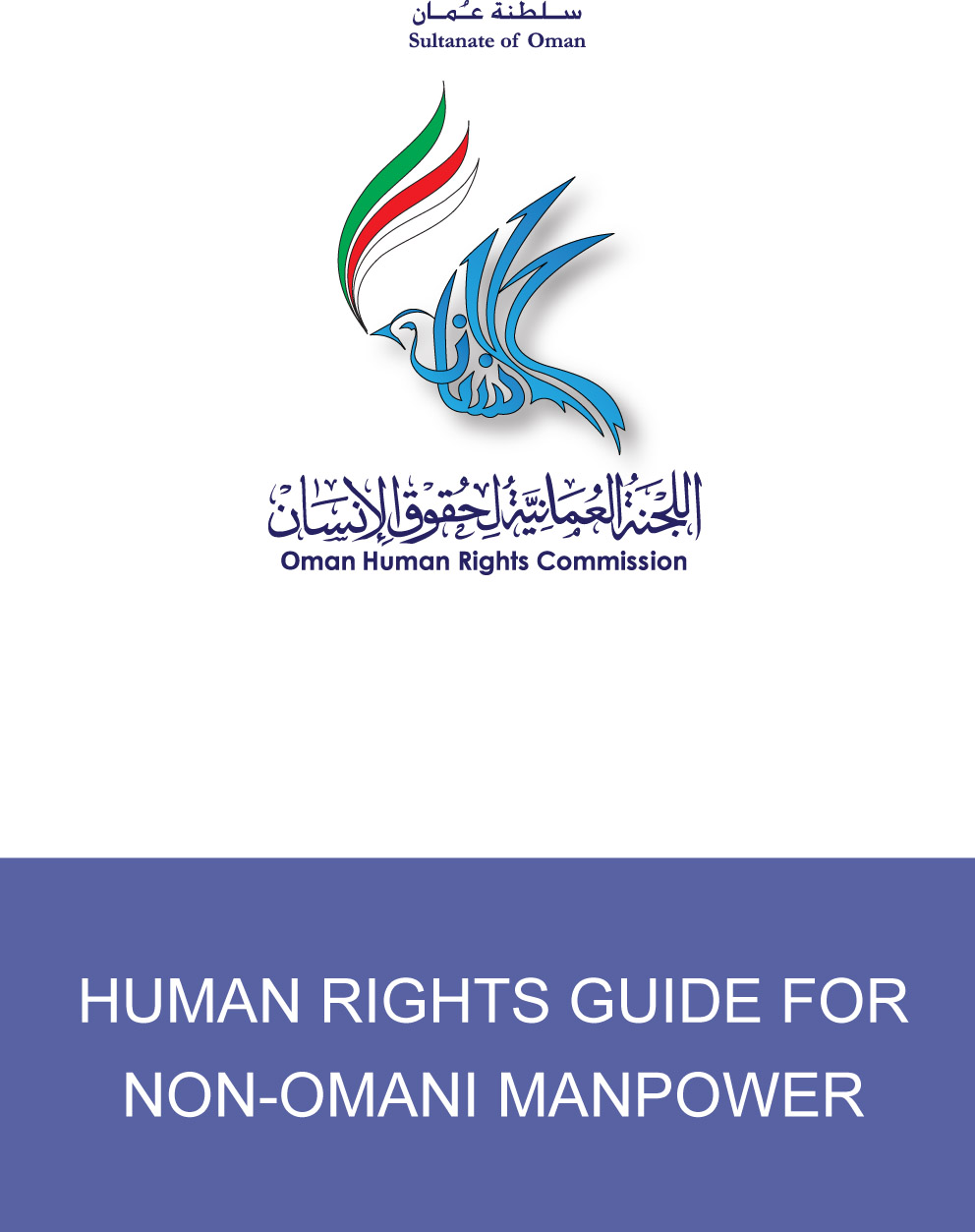Oman Human Rights Commission followed the case of African domestic worker after the receipt of a letter from the International Trade Union Confederation that the domestic worker was abused by the family for which she works and that she desires to go back home. Upon receiving the report, the Commission communicated with the domestic worker through her phone and with the owner of the house where the domestic worker works. The house owner indicated that the domestic worker was not abused in any form and that these allegations are baseless and that the domestic worker causes concerns for the family due to her desire to leave and fabricate problems to leave the house and look for another job opportunity in violation of the concluded contract and the applicable labor legislations or otherwise returns back to her home country.
In addition, the Commission communicated with the National Human Trafficking Committee supervised by the Omani Ministry of Foreign Affairs. The Committee, on turn, immediately sent a team to the domestic worker’s place of residence and conducted investigations. It was concluded later that all allegations raised by the worker are groundless and incorrect in an attempt to leave the house where she works and look for another job opportunity in violation of the applicable law. It is worth mentioning that the National Human Trafficking Committee took the domestic worker to accredited health center for the conduct of medical examinations. These examinations revealed that the domestic worker was not subjected to any kind of physical abuse. In cooperation with Ministry of Manpower, Royal Oman Police, the worker has been provided with a safe accommodation, all required necessities, paying her all outstanding dues and ensure her safe return to her home country.
Oman Human Rights Commission would like to indicate that the Sultanate of Oman pays great attention to apply a legislative system that ensures the rights of workers regardless of their races and nationalities in line with the international labor standards. The Sultanate of Oman exerts tremendous efforts to enhance labor rights through the state’s basic statute, labor law and ministerial resolutions, and by joining and ratifying several relevant conventions and protocols in this regard. Among the most important conventions ratified by the Sultanate are as follows: Convention (105) regarding the abolition of forced labour, Convention (29) of the International Labor Organization regarding the forced labour and the he International Convention on the Elimination of All Forms of Discrimination.
The Sultanate signed a memorandum of understanding with the International Labor Organization in 2011, which memorandum was renewed in 2014 and 2017 respectively in order to enhance the social protection as per the international labor standards. In addition, the Sultanate acts to ensure protection of domestic labor rights as it has issued employment terms and conditions for domestic workers by virtue of ministerial resolution No. 189/2004 which includes set of legal arrangements and procedures to ensure decent work for domestic workers that is governed by an employment contract between the employer and the domestic worker, which requires the payment of a monthly wage to the worker within seven days from the end of every month, and provision of food, adequate housing, health care and safety standards free of charge to the worker throughout the period of the contract. The legislations exempt domestic workers from paying any judicial fees against all labor lawsuits submitted by them in addition to disputes that can’t be amicable resolved at the level of the Ministry where disputed parties can present their cases to the concerned labor courts. Circular No. (2/2006) prohibits the employer from retaining any personal documents of the domestic worker, such as his passport, except with the consent of the domestic worker.
In support of the legal and procedural steps taken in this field, Oman Human Rights Commission issued a “manual for workers” explaining their entire rights and how to claim them. This guide is printed in multiple languages and made available for all workers residing in the Sultanate of Oman.



